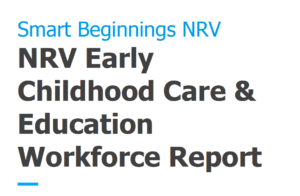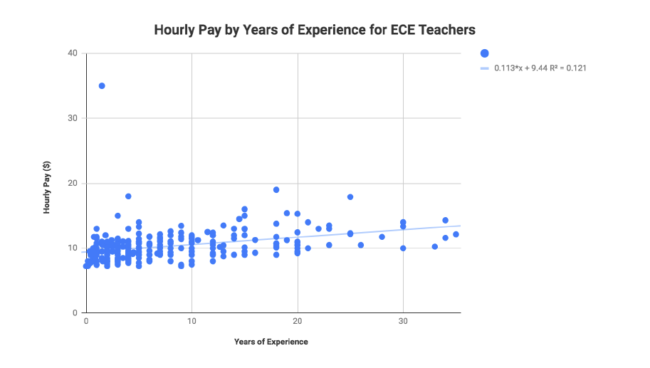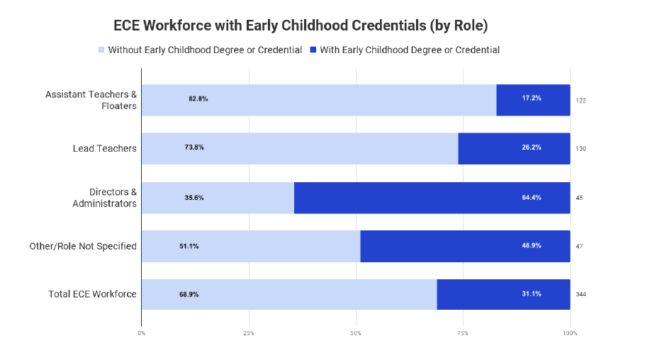Portfolio Item 1: ECE Workforce Report (Smart Beginnings New River Valley; VA)
Download the NRV Early Childhood Workforce Report (PDF)
 About the NRV Early Childhood Workforce Report
About the NRV Early Childhood Workforce Report
While interning at Smart Beginnings NRV in southwest VA, I had the opportunity to take an existing dataset of survey responses from the spring of 2019 and perform the first regional analysis of the early childhood education workforce. This analysis included issues of education, compensation (hourly rates, as well as pay increases by years of experience in the field), specialization and training in the early childhood field, professional development opportunities, poverty rates of teachers, and other challenges faced by those employed in the field. Conducting the necessary background research, planning and executing the analysis, and communicating the results proved a rewarding and eye-opening experience.
While I was developing the Workforce Report, I was confronted with several challenges that led to growth. Initially, I had very basic analyses in mind, given that the limitations of the data (based on question phrasing, response types, or sample size) restricted options for the kinds of analysis that could be conducted. This limited my initial scope of analysis. However, as I explored the data, new questions came to mind, such as the nuances of not just looking at the percent of teachers with a certain education level, but the looking at rates of formal early childhood-related training (i.e. a highly credentialed workforce, with bachelor’s and master’s degrees, might not necessarily translate to highly trained early educators if they pursued those degrees outside of education and child development). I was able to prioritize specific questions for the analysis, perform data cleaning and statistical analysis, and then visualize and communicate the results through the report. In doing so, I learned to adapt to the challenges present in the dataset and still be able to gather meaningful results that were available for interested audiences, while providing the necessary context for those who might be unfamiliar with some of the challenges facing the field.
As someone who is deeply passionate about early childhood education, my core values and beliefs were able to motivate me to stay engaged during some of the more detailed-oriented components of the analysis. I knew that this information was important for the work of the deserving and currently undervalued early childhood workforce in the New River Valley region of Virginia. Being guided by core beliefs is a strength of mine, and so I was able to harness that strength in order to hone new areas of skill—taking ownership over a data-related project and being responsible for effectively communicating the findings of the project for a variety of audiences–in producing this workforce report. It is important to me that rigorous research results in key areas of policy—in this instance, related to the current state of the early childhood workforce—be communicated honestly, clearly, and compellingly to relevant audiences. This project gave me the opportunity to discover that advocating for early childhood educators, as well as communicating data in meaningful, visual ways to advocate for change would be a meaningful component of future career goals I’d pursue.

